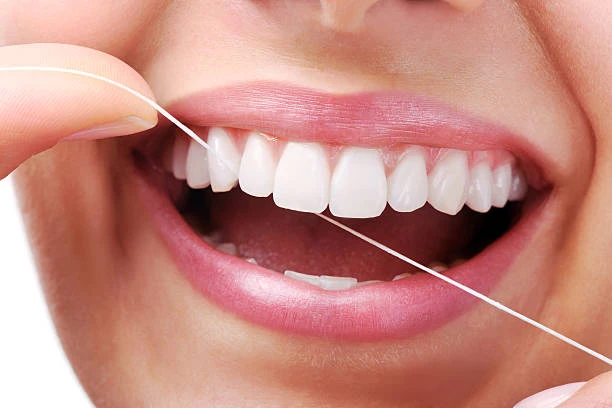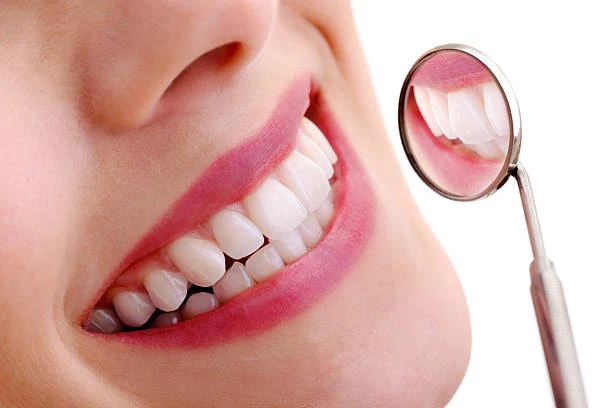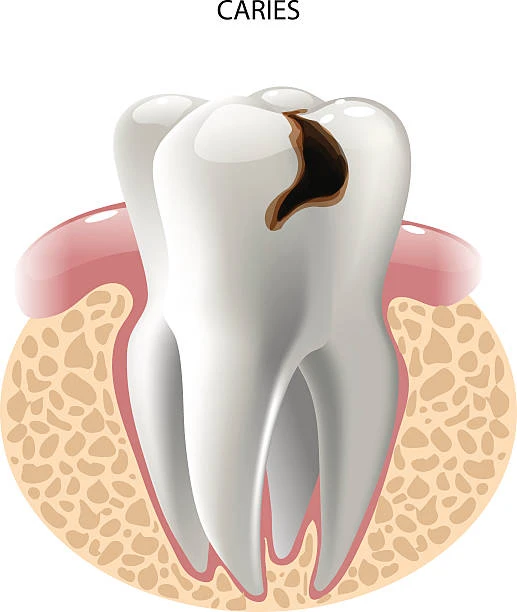An exposed tooth nerve is a dental condition that can lead to significant pain and discomfort, affecting your daily life and overall dental health.
This condition occurs when the protective layers of a tooth—enamel and dentin—are compromised, leaving the nerve vulnerable to external stimuli and potential damage.
In this Supremia Dentistry concise guide, we will explore the anatomy of teeth, the causes and symptoms of exposed tooth nerves, immediate and professional treatments, preventive measures, and long-term oral health care.
The Tooth Anatomy
Understanding the anatomy of a tooth is crucial in comprehending how tooth nerves become exposed. This knowledge helps in recognizing the symptoms and seeking appropriate treatment.
The Structure of a Tooth
A tooth comprises several layers: enamel, the hard outer layer; dentin, the layer beneath the enamel containing tiny tubules; and pulp, the innermost part housing nerves and blood vessels. These layers work together to protect the nerve and maintain the tooth’s health.
The Function of Tooth Nerves
Tooth nerves are responsible for sensation and help detect pressure, temperature changes, and pain. This ability to sense discomfort signals potential issues within the tooth, prompting timely intervention.
How Tooth Nerves Become Exposed
Tooth nerves can become exposed for various reasons, such as decay, trauma, or gum disease. When the protective layers are compromised, the nerve becomes vulnerable, leading to sensitivity and pain.
Causes of an Exposed Tooth Nerve
Several factors can contribute to an exposed tooth nerve, each affecting the integrity of the tooth’s protective layers. Identifying these causes can help prevent nerve exposure and maintain dental health.
Tooth Decay and Cavities
Tooth decay and cavities result from bacterial buildup, which can erode enamel and dentin, eventually reaching the nerve. This process leads to increased sensitivity and pain in the affected tooth.
Dental Trauma
Injuries or trauma to the teeth can crack or chip enamel, exposing the underlying nerve. Such damage requires prompt attention to prevent further complications.
Worn Enamel
Enamel erosion, caused by acidic foods, aggressive brushing, or grinding, can lead to nerve exposure. Proper dental care is crucial for protecting enamel and preventing this issue.
Gum Disease
Gum disease can cause gums to recede, exposing the roots of teeth and the nerves within. Addressing gum disease early can prevent nerve exposure and maintain oral health.
Failed Dental Procedures
Previous dental work that was improperly executed or deteriorated over time can lead to nerve exposure. Regular dental check-ups can identify and rectify such issues before they cause pain.
Symptoms of an Exposed Tooth Nerve
Recognizing the symptoms of an exposed tooth nerve can help you seek timely treatment. Early intervention can prevent complications and alleviate discomfort.
Sensitivity to Hot and Cold
One of the most common symptoms is heightened sensitivity to hot and cold temperatures. This sensitivity can make eating and drinking certain foods uncomfortable.
Sharp Pain
Sudden, sharp pain when eating or drinking certain foods can indicate an exposed nerve. This pain often occurs without warning and can be quite severe.
Persistent Toothache
A constant toothache that doesn’t subside can signal nerve exposure. Persistent pain requires prompt dental attention to determine the cause and appropriate treatment.
Swelling and Inflammation
Swelling and inflammation around the affected tooth may also occur. These symptoms can indicate an infection or other complications needing immediate care.
Diagnosing an Exposed Tooth Nerve
Proper diagnosis is essential for effective treatment of an exposed tooth nerve. Accurate identification of the problem ensures the right approach to alleviate pain and protect dental health.
Physical Examination
A dentist will thoroughly examine your teeth and gums to identify the source of pain. This examination helps pinpoint the exact cause of discomfort.
X-rays and Imaging
X-rays can help determine the extent of decay or damage and identify any underlying issues. Imaging provides a detailed view of the tooth’s internal structure, aiding diagnosis.
Pulp Vitality Tests
These tests assess the health of the tooth pulp and determine if the nerve is still viable. Pulp vitality tests are crucial in deciding the best treatment approach.
Immediate Relief for Tooth Nerve Pain
While waiting for professional treatment, there are ways to alleviate the pain of an exposed tooth nerve. These temporary measures can help manage discomfort until you see a dentist at Supremia Dentistry.
Over-the-Counter Pain Relievers
Over-the-counter pain relievers can offer short-term relief. These drugs assist in controlling pain and decreasing inflammation.
Home Remedies
Certain home remedies can help soothe tooth nerve pain. These remedies can be effective in reducing discomfort temporarily.
- Saltwater Rinse: Rinsing with saltwater can reduce inflammation and clean the affected area. This simple remedy is easy to prepare and use at home.
- Clove Oil: Applying clove oil can numb the pain and reduce inflammation. Clove oil has natural analgesic properties, making it popular for tooth pain relief.
- Ice Pack: An ice pack can help reduce swelling and numb the area. Applying an ice pack to the cheek over the affected tooth can provide temporary relief.
Temporary Dental Materials
Temporary dental materials, like dental wax, can protect the exposed nerve until you can see a dentist. These materials act as a barrier, preventing further irritation.
Professional Treatments for an Exposed Tooth Nerve
Professional dental treatments are necessary to address an exposed tooth nerve effectively. These treatments provide long-term solutions to alleviate pain and protect dental health.
Dental Filling
A dental filling can restore the damaged tooth and protect the nerve. This treatment involves removing decay and filling the cavity with a suitable material.
Root Canal Therapy
Root canal therapy involves removing the damaged nerve and sealing the tooth to prevent further infection. This treatment is often necessary for severely damaged teeth.
Dental Crown
A dental crown is a cosmetic dentistry treatment that can cover and protect a tooth from extensive damage. Crowns provide structural support and prevent further decay or damage.
Tooth Extraction
In severe cases, tooth extraction may be necessary to prevent further complications. Extracting the damaged tooth can alleviate pain and prevent infection from spreading.
Preventing Exposed Tooth Nerves

Preventive measures can help maintain the integrity of your teeth and avoid exposed tooth nerves. Consistent oral care and healthy habits are essential for prevention.
Maintaining Oral Hygiene
Good oral hygiene is essential for preventing tooth decay and gum disease. Regular brushing, flossing, and dental check-ups are crucial.
- Brushing Techniques: Use proper brushing techniques to avoid damaging enamel. Gentle, thorough brushing helps maintain enamel integrity.
- Flossing Regularly: Flossing helps remove plaque and prevent cavities between teeth. Regular flossing complements brushing for comprehensive oral care.
- Using Mouthwash: Mouthwash can kill bacteria and reduce plaque buildup. Including mouthwash in your routine enhances overall dental hygiene.
Regular Dental Check-Ups
Regular dental visits allow for early detection and treatment of potential issues. These check-ups help maintain dental health and prevent complications.
Dietary Recommendations
Eating a balanced diet and avoiding excessive consumption of acidic foods can protect enamel. Healthy eating habits contribute to stronger teeth and gums.
Avoiding Teeth Grinding
Using a mouthguard can prevent enamel wear caused by teeth grinding. Protecting your teeth from grinding can prevent nerve exposure and other issues.
Complications of an Untreated Exposed Tooth Nerve
Ignoring an exposed tooth nerve can lead to serious dental issues. Timely treatment is essential to avoid complications and protect oral health.
Infections and Abscesses
Untreated nerve exposure can result in infections and abscesses, causing severe pain and swelling. These complications require prompt medical attention.
Tooth Loss
Prolonged nerve exposure can lead to tooth loss if the damage is extensive. Preventive care and timely treatment are crucial to avoid this outcome.
Spread of Infection to Jawbone
Infections from an exposed tooth nerve can spread to the jawbone, causing more severe health issues. Early intervention can prevent such complications.
Living with Sensitive Teeth
Managing tooth sensitivity is crucial for those with exposed tooth nerves. Simple adjustments and treatments can help alleviate discomfort.
Choosing the Right Toothpaste
Using toothpaste designed for sensitive teeth can help reduce discomfort. These toothpastes contain ingredients that soothe sensitive nerves.
Using a Soft-Bristled Toothbrush
A soft-bristled toothbrush is gentler on enamel and gums. Using a gentle brush helps prevent further enamel erosion.
Dietary Adjustments
Avoiding foods and drinks that trigger sensitivity can minimize discomfort. Being mindful of your diet can significantly reduce sensitivity.
Desensitizing Treatments
Desensitizing treatments provided by your dentist can help alleviate sensitivity. These treatments offer long-term relief from tooth pain.
Supremia Dentistry: Your Trusted Dental Partner in Wake Forest, NC
At Supremia Dentistry, we are committed to providing exceptional dental care to our patients in Wake Forest, North Carolina. Dr. Edmond Suh and his team of dedicated professionals use innovative techniques, modern technology, and extensive training to ensure the best possible outcomes for our patients.
Our practice has been awarded the Wake Living Reader’s Choice Awards for the sixth consecutive year, a testament to our commitment to excellence.
We invite you to experience the difference at Supremia Dentistry. Whether you’re dealing with an exposed tooth nerve or need routine dental care, we are here to help you live life to the fullest. Schedule a consultation with Dr. Edmond Suh today and let our passion for dentistry enhance your smile and overall well-being.
Conclusion

Exposed tooth nerves can cause significant discomfort, but proper understanding and timely treatment can manage the pain and protect your dental health. Regular dental care and preventive measures are essential for maintaining healthy teeth and avoiding complications.
Remember, seeking professional help with Supremia Dentistry at the first sign of trouble can prevent more severe dental issues.

